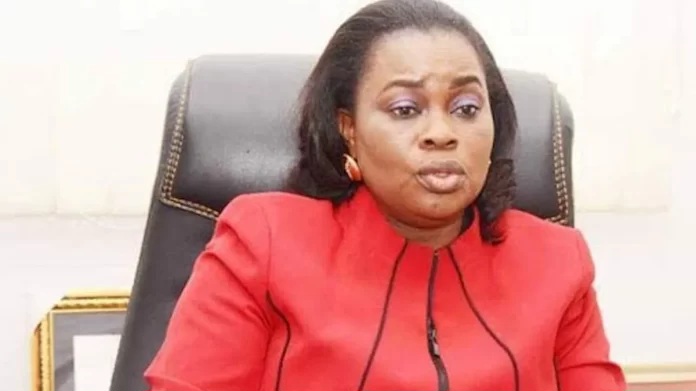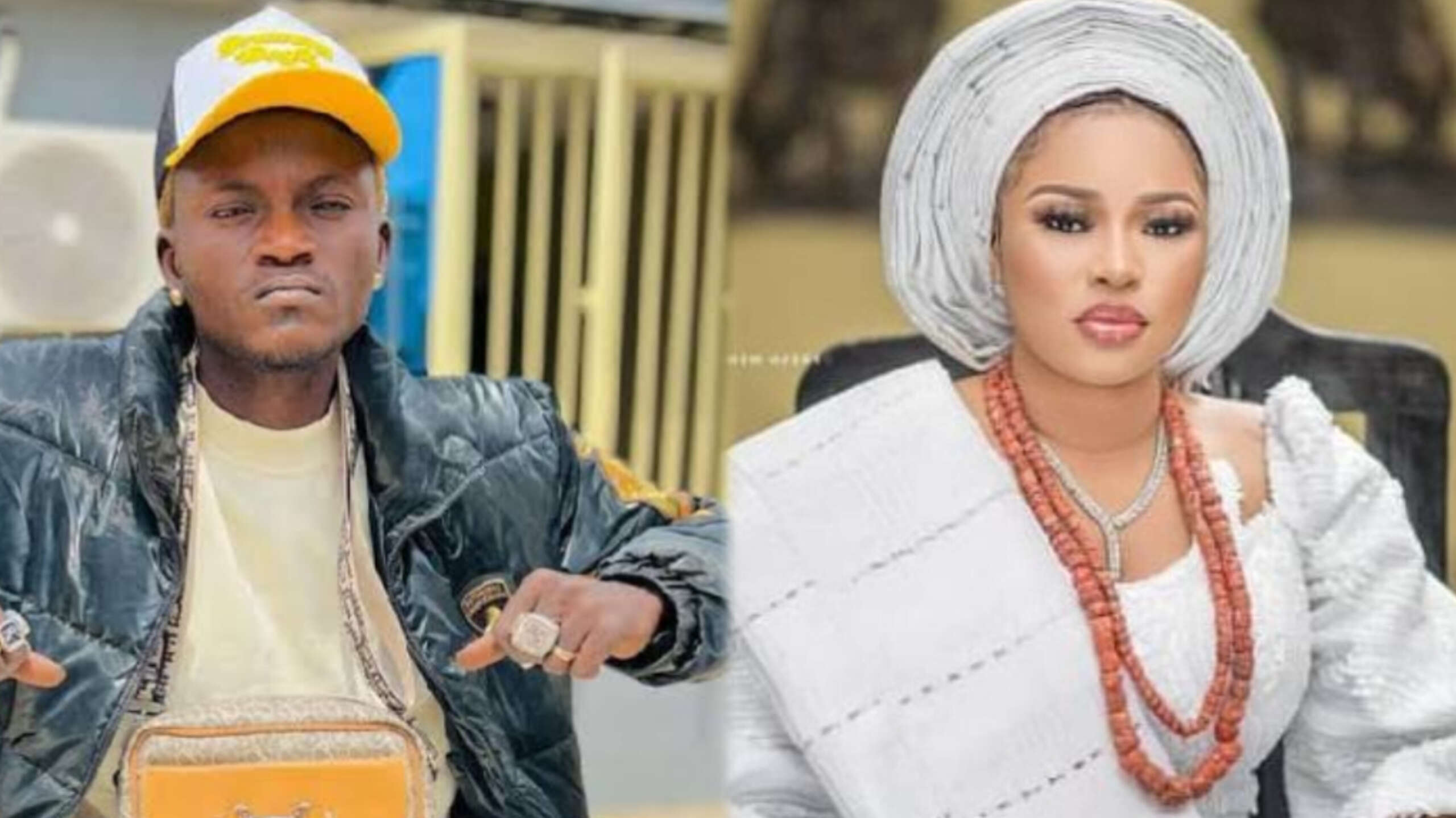 Nose – off-centre; mouth – misshapen; eyes – squinted; ears – rabbity; every Nigerian is familiar with this green face without a grin. On the green face, teary streams gutter down the sides of the nose, towards the nostrils, coursing to the chin. This is Nigeria and its map.
Nose – off-centre; mouth – misshapen; eyes – squinted; ears – rabbity; every Nigerian is familiar with this green face without a grin. On the green face, teary streams gutter down the sides of the nose, towards the nostrils, coursing to the chin. This is Nigeria and its map.
The tears streaming on each side of the green face typify the River Niger and River Benue, which meet at the base and confluence of the nose at Lokoja, meandering through Onitsha and the Niger Delta – the chin of the Nigerian face.
Death is the cessation of life. To die, in the Hausa language, means ‘ya mutu’. I don’t need the letter ‘d’ in the ‘death’ referenced in the preceding sentence, but I will use the letter ‘y’ in the ‘ya mutu’ phrase. After centuries of running deep, River Niger and River Benue have etched a big letter ‘Y’ on the Nigerian map.
The northern and southern protectorates of Nigeria were amalgamated in 1914. Today, an x-ray of the letter ‘Y’ engraved by the two longest rivers on the Nigeria map, more than ever before, shows the frayed thread of colonial suture, threatening to rip apart. Successive leaders chanted CHANGE, but both rivers are drying up due to climate change. The discernible warned before polls; now we can all see that they pay lip service to Nigeria and global warming.
 For ‘Ya mutu’ not to be written as an epitaph for Nigeria soon, the threat to the riverine ‘Y’ on the Nigerian map should be taken as a call for national rebirth. Rivers are natural sources of rejuvenation, but the ‘Y’ of the two rivers that geographically suture Nigeria together is a yoke. Let’s break the yoke!
For ‘Ya mutu’ not to be written as an epitaph for Nigeria soon, the threat to the riverine ‘Y’ on the Nigerian map should be taken as a call for national rebirth. Rivers are natural sources of rejuvenation, but the ‘Y’ of the two rivers that geographically suture Nigeria together is a yoke. Let’s break the yoke!
A grandmaster of Nigerian comedy, Atunyota Alleluya Akpobome, is an influential personality. Popularly called Ali Baba, the ace comedian earns a living cracking ribs. In doing his job, Ali Baba mimics and distorts reality. In distorting reality, he could change the letter ‘y’ in his name, Atunyota, to ‘r’, thus becoming Atunrota. In the Yoruba language, Atunrota means someone who fools people, and Ali Baba fools his audience with his crazy jokes.
On April 1, last year, Ali Baba came out with a viral post, saying his family had been blessed with a triplet. With the viral post emerging on April Fools’ Day, I had thought, “This Atunrota man can’t fool me.” But, lo and behold, Ali Baba wasn’t fooling, he was for real – he had truly become Baba ibeta.
Ali Baba was born on June 24, 1965, inching within a scraping distance of 60. I don’t know what fascination he has with April, but he has come out with a viral video in April 2025. In the video, Ali Baba, who spoke in a podcast, “Outside the Box,” revealed the political tactics of ex-President Olusegun Obasanjo.
Initially, I was cautious. Was Ali Baba in his prankish element? I asked myself repeatedly as I watched the video. No. Ali Baba wasn’t kidding. To show his seriousness, he asked the host if he could read from his phone, and he fished it out of his pocket and read out the private chat he had with Baba Obasanjo.
Since Ali Baba attained national prominence many years ago, trust has been the bedrock of his career. He is friends with many of Nigeria’s Who’s Who. My bosom friend, Duke Orusara, an Urhobo like Ali Baba, told me Atunyota means ‘Let us say the truth’. I believe Ali Baba was saying the truth in his podcast on OBJ.
In the interview, Atunyota recalled that Obasanjo had thought he was going to run for an elective post. So, OBJ gave Ali Baba the template needed to win a presidential election in Nigeria.
With the headline, ‘Infiltrate parties, secure governors’, Alibaba outlines Obasanjo’s political strategies for winning election, The PUNCH, on April 6, 2025, published the story of the podcast.
According to the podcast, Obasanjo told Ali Baba how to violate Nigeria’s electoral process and win fraudulently. Either as a joke or as an expression of the Nigerian reality, Obasanjo’s teaching in the podcast showed the truth of Nigerian politics. It showed the minds of those who lead the country and why Nigeria can never attain development. Obasanjo sees power as grabbable, Tinubu sees it as snatchable, Muhammadu Buhari sees it as a birthright, Goodluck Jonathan sees it as a toy, and Nigeria tumbles downhill.
To win a presidential or governorship election, Obasanjo counselled Ali Baba, “You need seven governors to win an election: Lagos, Bayelsa, Delta, Rivers, Kano, Kaduna and the CBN governor.”
When Ali Baba reminded him Kano and Kaduna do not have money, Obasanjo said that the two states were for numbers, just as money was for numbers, too.
Reading further, Ali Baba quoted Obasanjo saying, “You need 44 of the most popular senatorial districts. You need to have awarded 10 contracts, and 15% of those contracts can give you a marginal impact at the polls. And you must award this contract in your first year of assumption of office.
If you don’t do that, then you can’t ask the people for anything because when you give them at the first year of your getting into office, when it’s time for elections, you just tell them ‘Do you want to continue this contract or…?”
According to Alibaba, Obasanjo also advised that pending cases of corrupt former governors who are ‘loaded’ should be suspended, even as Obasanjo advised him to have a hand in appointing all ruling and opposition parties’ chairmen.
 Obasanjo was the man who said his kinsman and winner of the June 12, 1993 presidential election, Chief MKO Abiola, wasn’t the messiah Nigeria needed, after the business mogul and politician had been killed for winning the freest election in the nation’s history. His eight-year democrazy rule laid the foundation for the sky-high corruption bedevilling the Fourth Republic today. Anytime Obasanjo speaks, I see the ostrich, its buried head and exposed rump.
Obasanjo was the man who said his kinsman and winner of the June 12, 1993 presidential election, Chief MKO Abiola, wasn’t the messiah Nigeria needed, after the business mogul and politician had been killed for winning the freest election in the nation’s history. His eight-year democrazy rule laid the foundation for the sky-high corruption bedevilling the Fourth Republic today. Anytime Obasanjo speaks, I see the ostrich, its buried head and exposed rump.
Now, come with me to Bourdillon, the Tinubu family house, where I’ll drop by to see Seyi, the son of the President.
Knock, knock, knock on Bourdillon gate.
“Hello.”
“Yes, how may I help you?”
“My name is Tunde, a journalist; I’m here to see Seyi.”
“Seyi?” Which Seyi?
“Seyi Tinubu, the President’s son.”
“Ha! You call Arole by name!? Who are you?”
“Yes, Seyi is a public figure and the son of our President, but I’m older than him.”
“Older than him? OK! He’s in Aso Rock; tell your age to take you to Aso Rock, Methuselah.”
(Slams the gate!)
At 39 years of age, I had expected Seyi to be weaned off his father’s apron strings and stand on his own like the other children of the President, who don’t live in the shadow of their father.
Seyi and his elder sister, Folasade, are the most politically exposed children of Tinubu. Officially, Folasade, in her post as the Iyaloja General of Nigeria, is the head of all market women in Nigeria. But Seyi presents like a catalyst. Seyi caresses the girth of power and hugs the width of wealth, thinking his father’s mystique will protect him from political arrows. He goes to the sea yet despises the splash of water.
In chemistry, a catalyst is a substance that speeds up a chemical reaction without itself being consumed in the reaction. A catalyst can be likened to a baker who works in a bakery without feeling the heat. Seyi wants to be seen as a smooth operator – he goes everywhere sandpapering the atrocities of his father’s reign and feathering his own nest.
 Seyi lives in Aso Rock with his father. He’s much more visible than the First Lady, Mrs Remi Tinubu, inspecting a brigade of honour here and breaking Ramadan fast there. Seyi is more visible than any minister, Tinubu’s chief of staff and advisers. Seyi seems to be operating an invisible Office of the First Son. Seyi is looking for something on Lagos beach. It is a needle. Seyi needs his father and his wisemen to find the needle and raise his hand up in 2027.
Seyi lives in Aso Rock with his father. He’s much more visible than the First Lady, Mrs Remi Tinubu, inspecting a brigade of honour here and breaking Ramadan fast there. Seyi is more visible than any minister, Tinubu’s chief of staff and advisers. Seyi seems to be operating an invisible Office of the First Son. Seyi is looking for something on Lagos beach. It is a needle. Seyi needs his father and his wisemen to find the needle and raise his hand up in 2027.
The Office of the First Son is powerful. It’s more powerful than any government ministry or agency. That’s why the lickspittles at the Nigerian Broadcasting Commission lashed out at hip-hop singer, Eedris Abdulkareem, banning his song, “Tell Your Papa,” which lampoons the Tinubu administration.
Declaring ‘Not-To-be-Broadcast’ fatwah on the viral song, the NBC quoted Section 3.1.8 of its code, saying, “This section prohibits content deemed inappropriate, offensive, or in breach of public decency from being aired on Nigerian broadcasting platforms.”
In its ban order to all broadcasting stations in the country, the NBC woefully failed to mention just one word or phrase or clause or sentence in Eedris’ song that breached the NBC Code.
Eedris’ song says nothing new. The song is a lamentation of the sufferings Nigerians daily go through amid government’s insensitivity, telling Seyi to tell his father that Nigerians are suffering, after all, “omo ina la n ran sina,” literally meaning, “It is the son of fire that is sent to fire.”
If Seyi has the right to defend his father, Eedris also has the right to protest the bad policies of the Tinubu government affecting him.
Obasanjo banned Eedris’ song, “Jagajaga”, Tinubu bans “Tell Your Papa;” hypocrisy has caught OBJ and Jagaban in the same bed.
Email: tundeodes2003@yahoo.com
Facebook: @Tunde Odesola
X: @Tunde_Odesola





